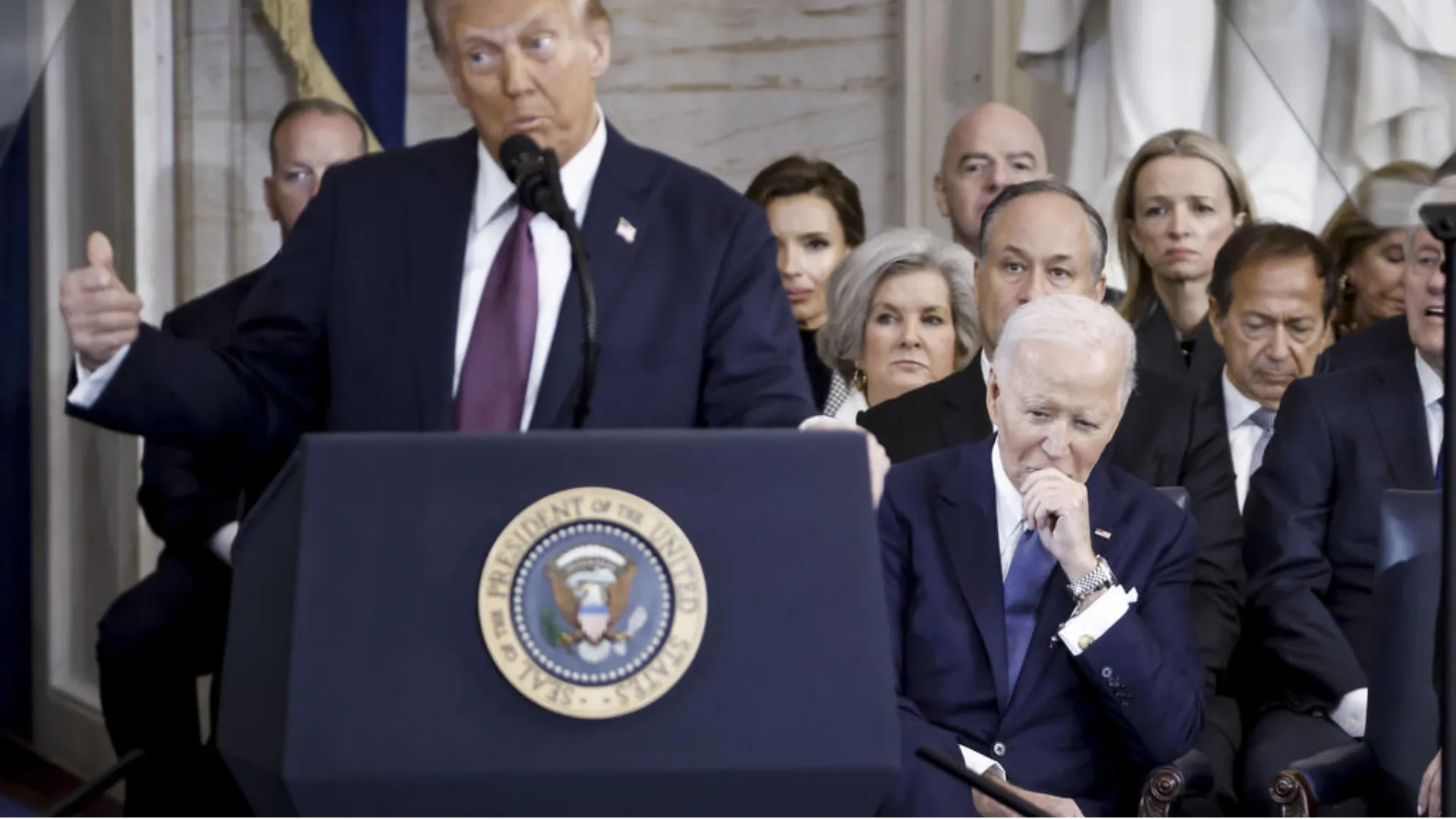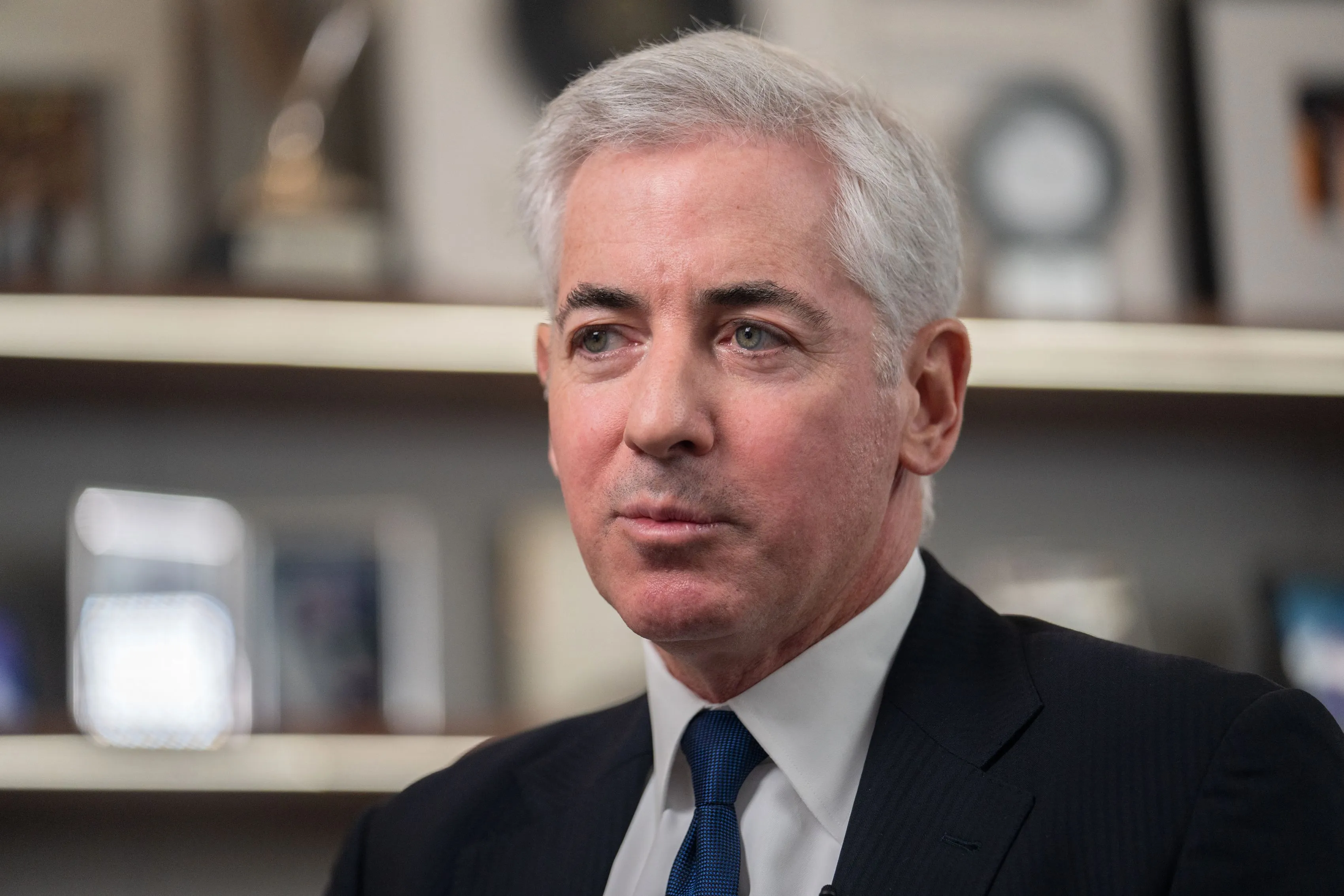
Walmart has expressed concerns that former President Donald Trump’s proposed tariffs could significantly raise prices for consumers, potentially straining household budgets already impacted by lingering inflation.
The retailer’s Chief Financial Officer, John David Rainey, recently highlighted these challenges during an interview on "The Claman Countdown," underscoring the financial burden that such tariffs would impose on American families.
“Tariffs are going to be inflationary. There's no disputing that,” Rainey stated. “Consumers are likely going to pay more for items affected by these tariffs.”
Walmart, like many other retailers, sources products from around the globe, and while two-thirds of its merchandise is made, grown, or assembled in the United States, the company is not insulated from the ripple effects of increased import costs.
The proposed tariffs include a universal 10%-20% levy on imports from all foreign countries and an additional 60%-100% tariff specifically targeting goods from China. These measures aim to bolster domestic manufacturing but are projected to drive up costs for imported goods that American consumers rely on daily.
A recent study by the National Retail Federation (NRF), the largest retail trade organization in the U.S., estimated that the proposed tariffs could cost American consumers between $46 billion and $78 billion annually in spending power.
The study identified six key categories of goods likely to be affected: apparel, toys, furniture, household appliances, footwear, and travel goods.

Walmart, as the country’s largest retailer, is deeply concerned about the potential impact on its shoppers, especially low-income families, who already allocate a significant portion of their budgets to necessities. "We're going to work with our suppliers as well as our private brand assortment to continue trying to bring down prices for customers," Rainey assured.
However, he admitted that navigating these additional costs would be challenging, given the company's reliance on international supply chains, including key partnerships in China and throughout Asia.
Although Walmart has observed deflation in certain categories like general merchandise and consumables, Rainey noted that food prices remain elevated.
This lingering inflation exacerbates concerns about the potential for tariffs to further strain household budgets. Walmart emphasized that the proposed trade policies could harm consumers at a time when many are still recovering financially from the economic effects of recent years.
In a statement to FOX Business, a Walmart spokesperson reiterated the company's stance: “We remain concerned that significantly increased tariffs could lead to increased costs for our customers at a time when they are still feeling the remnants of inflation.”
While proponents of the proposed tariffs argue they could benefit U.S. manufacturers and bring more jobs to domestic production, experts, including the NRF, caution that the overall economic impact could be negative.
According to the NRF, while some American producers may see short-term gains, these benefits are unlikely to outweigh the broader losses to consumers. The tariffs would effectively function as a tax on imported goods, disproportionately affecting low-income families who spend a higher percentage of their income on essential items.

The NRF further pointed out that these policies could lead to higher prices across a wide range of everyday goods, including clothing, shoes, and household items. This, in turn, could limit consumer spending power, slowing down economic growth.
The discussion surrounding Trump’s proposed tariffs has reignited debates about the balance between protecting American industries and shielding consumers from rising costs.
Retailers like Walmart, which serve millions of families across the country, are advocating for policies that avoid placing undue financial pressure on households.
As the largest retailer in the U.S., Walmart’s warnings about higher prices carry significant weight. The company’s leadership has emphasized its commitment to working with suppliers and innovating within its private brands to mitigate the impact of higher costs.
However, Rainey stressed that predicting the exact effects of the tariffs remains difficult due to the complex nature of global trade and supply chains.
With the NRF estimating billions in lost consumer spending power, the proposed tariffs could have far-reaching implications for both businesses and families.
As discussions around these trade policies continue, the focus remains on finding a solution that protects American economic interests without unfairly burdening everyday consumers.



